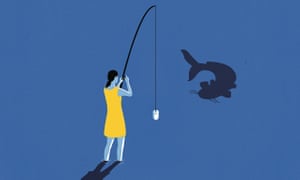
11 Mar E Safety: What to Look Out For to Stay Safe Online
The internet dominates our daily lives. From children, to teenagers, to adults; we spend hours each day consuming content from the incredible resource that is the online world. However, with this huge source of information and potential for connection, comes a responsibility to be aware of the potential dangers of living our lives online. Last year, we published top 10 tips for teens on how to stay safe online, and it’s time to revisit our e-safety advice to try and ensure that no matter how old you are, you’re aware of the potential risks.
Still very much an issue
Just in the last few weeks the MOMO challenge came and went – an online ‘game’ encouraging children to harm themselves which actually turned out to be a hoax. If the hysterical reaction to a challenge that turns out to be a hoax tells us anything, it’s that people still feel a lack of control and lack of knowledge about what’s out there on the internet. And perhaps that is because of the pure scale of the potential dangers. So, what should you be looking out for?
Fake news
 It may have been a bit of a buzz word over the past two years, but there’s good reason for it. With the MOMO challenge at front and centre, it’s important to be aware of eye-popping headlines, information source and publisher credibility. Perhaps the greatest danger of fake news is the tinted viewpoint it can create, based on something nothing more than fiction. Always investigate any news source to determine its credibility; check if it has an unusual domain name ( like .com.co or similar), pay attention to language, spelling and grammar (are there lots of mistakes?) and run any outlandish claims or facts through a credible fact-checking website.
It may have been a bit of a buzz word over the past two years, but there’s good reason for it. With the MOMO challenge at front and centre, it’s important to be aware of eye-popping headlines, information source and publisher credibility. Perhaps the greatest danger of fake news is the tinted viewpoint it can create, based on something nothing more than fiction. Always investigate any news source to determine its credibility; check if it has an unusual domain name ( like .com.co or similar), pay attention to language, spelling and grammar (are there lots of mistakes?) and run any outlandish claims or facts through a credible fact-checking website.
Phishing
Have you ever received an email from a seemingly credible source, but with an offer that just feels too good to be true? If you didn’t click on it, you made the right decision. However, with our personal data more valuable than ever, many people have succumbed to frauds trying to obtain sensitive information such as passwords and payment card details. Always think before you click, and if you see a suspicious-looking email in your inbox – delete it straightaway without clicking through to any links it contains.
Dangers of online strangers

We’ve made genuine friends through the online world and we know many of you have too. Unfortunately some people have been ‘catfished’, a term made popular by an American TV programme about fake identities online. A catfish is someone that fakes their online identify in an attempt to begin a deceptive relationship. If something doesn’t seem quite right, it’s always worth further investigation. It’s also essential that if any communication received online makes you uncomfortable, it’s reported as soon as possible.
Online isn’t always the whole story
Perhaps a less obvious danger, but if we’re talking about staying safe online, it’s important to recognise the subtle dangers, as well as the more tangible issues. Lifestyles that are portrayed online aren’t always the full story, and although it may seem like someone you’re following has ‘the perfect life’, there may be many other issues that person ins’t sharing online. This is particularly prominent in social media, considering the popularity of platforms such as Instagram and YouTube. We have written about how you can mindfully use social media if you think this might be an issue affecting you.
Be mindful about your own digital footprint
Whereas the other dangers that we have identified are issues that you can come across by being online, this is a little different. It’s important to be aware of what you are posting online, as posting is permanent. Once a tweet, video or comment is posted, it’s likely to stay there forever. Deleting it may not really make it go away, so just remember to think twice before you post in the heat of a moment.
The internet is a brilliant thing, but like everything there are risks out there – some tangible, and some harder to recognise straight away. Ensuring you and the people close to you, are aware of these risks is the first step to ensure that few problems are encountered online. If you feel like you’re spending a little too much time online, and it’s having an effect on other parts of your life, then read more about internet addiction here, or get in touch to find our more about how we can help your digital detox.




Sorry, the comment form is closed at this time.